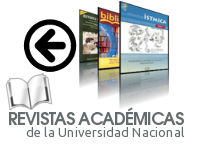Personas revisoras/evaluadoras
The present code of ethics refers to the principles that guide the editorial activity of Siwö' Revista de Teología / Estudios Sociorreligiosos. It concerns both the authors and those who edit and revise the texts.
Reviewers / Evaluators
The main objective of the reviewers should be to analyze and compare the material in a complete and integral way to evaluate the quality and relevance of its content.
1. The double-blind modality will be followed, which means that the authors will not know the identity of those who review their material, nor the reviewers the authorship of the evaluated material.
2. The reviewer accepts the responsibility of issuing an impartial judgment, voluntarily and without any type of economic compensation, from any of the parties involved.
3. It is essential to protect the confidentiality of the content of the article in the review stage. Therefore, the reviewer should not discuss or share the contents of the article with third parties during the review stage.
4. Impartiality must be safeguarded. If a reviewer detects a conflict of interest for political, religious, commercial competition or any other reason, he or she must immediately notify the management of Siwö ’Journal of Theology / Socio-religious Studies.
5. Reviewers undertake to deliver their evaluations of articles to the person responsible for managing the journal within the agreed period, following the evaluation guide (checklist) of Siwö ’Journal of Theology / Socio-religious Studies.
6. Reviewers must provide their specialized criteria for: a) the approval of the submitted article without changes, b) its approval with few changes, duly indicated in the Observations section of the evaluation guide, or c) its rejection, with the corresponding explanation in the Observations section of the evaluation guide.
7. Both the authors and those who evaluate the articles receive a certification as proof of their collaboration with Siwö ’Journal of Theology / Socio-religious Studies, if they so request. Your job does not involve any kind of payment.
8. Reviewers must keep absolute confidentiality about the works evaluated and must not evaluate works on which they may present a conflict of interest.
9. In the event of any suspicion of plagiarism, redundant publication, fabricated data, or any action considered as a bad practice, the reviewer must notify the journal's management.
10. The review maintains the character of transferability. If an article had to be evaluated by the person in charge of the review in a previous way in another journal, you can submit that evaluation. In the same way, you can use the review made in Siwö ’Journal of Theology / Socio-religious Studies for other journals.
---------------------------------------------------------------------------------------------------------------------------------------------
Reference documents:
-Marcela Aguirre Cabrera. (2010). Glosario Latindex. 20/05/2019, de Latindex Sitio web:
https://www.latindex.org/lat/documentos/Glosario_Latindex_esp.pdf
-Cope, Code of conduct and best practice for journal editors











